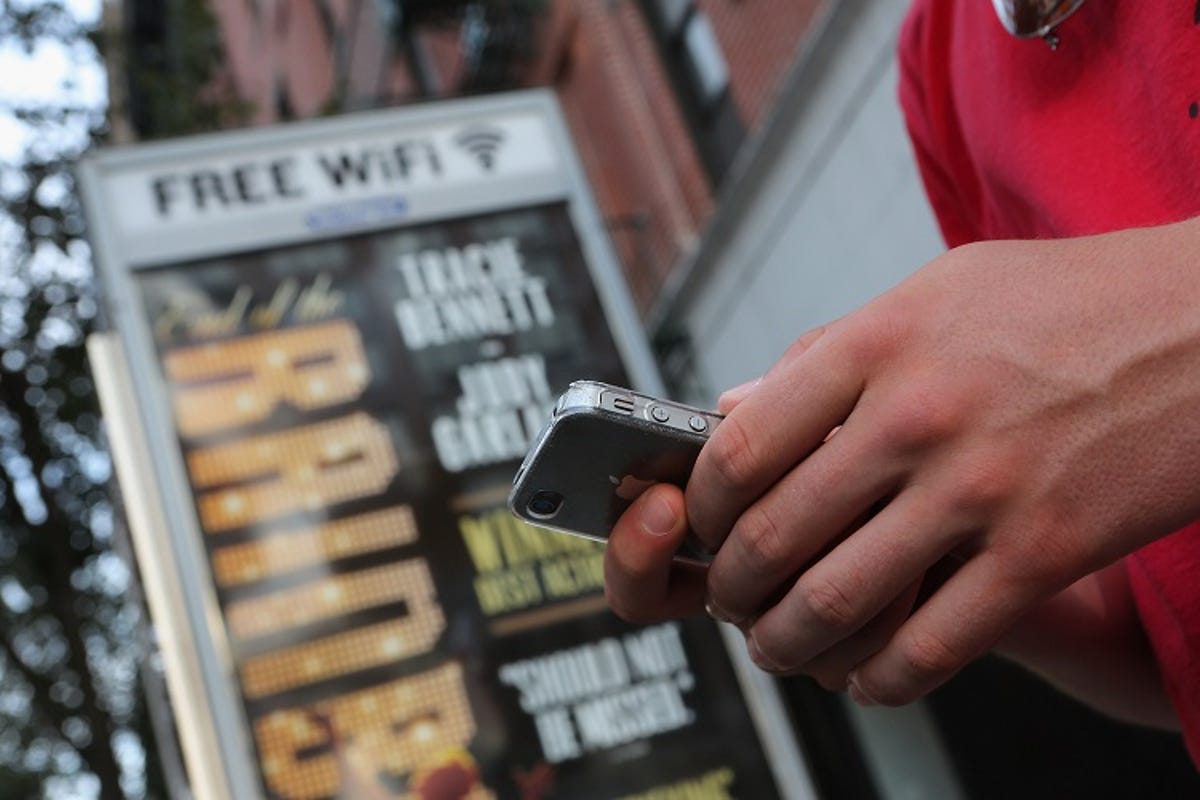
John Moore/Getty Images
Two US senators want more spectrum made available for Wi-Fi services, and they’ve introduced legislation that would free up underutilized high-frequency spectrum for such uses.
On Friday, Sens. Cory Booker (D-NJ) and Marco Rubio (R-Fla.) announced the Wi-Fi Innovation Act, which would expand the amount of bandwidth available for unlicensed Wi-Fi use. The legislation proposes making 75 megahertz of spectrum in the upper 500MHz band available for unlicensed use. This spectrum is currently allocated to satellite services, amateur radio, and future intelligent-vehicle communications.
The Federal Communications Commission has already committed to freeing up 100MHz of spectrum in the lower 5GHz band for Wi-Fi. The Wi-Fi innovation Act would nearly double the available spectrum in this band. This spectrum is needed, experts say, to help alleviate congestion on existing Wi-Fi networks (which generally operate at the 2.4GHz band), especially in public areas such as convention centers, sports arenas, and airports.
Because the spectrum is at a higher frequency, it will also pave the way for faster speeds on Wi-Fi. What’s more, the 5GHz will allow the deployment of gigabit speed downloads using Wi-Fi.
Mobile devices, such as smartphones and tablets, along with other wirelessly connected consumer devices, are driving demand for more capacity in mobile networks. Because of the scarcity of available wireless spectrum and the expense of using licensed cellular services from wireless carriers, Wi-Fi has grown as an important network technology to offload high capacity data traffic and provide wireless Internet access to millions of devices.
The senators said in their statement that they recognize the growing need for more Wi-Fi capacity.
“There is a clear and growing demand for increased availability of spectrum,” Sen. Booker said. “We want to see this valuable resource made available for further use by the public.”
The legislation, if passed, would ask the FCC to seek comment on how Wi-Fi devices can share spectrum with future Intelligent Transportation Service technologies without causing harmful interference. The legislation also directs the FCC to find the best technologies and approaches for sharing the spectrum with other license holders.
Companies, such as Comcast, which has been pushing the FCC to release more wireless spectrum for unlicensed use, applauded the bill. In a blog post, David Don, vice president of regulatory policy for Comcast, said the bill will pave the way for better access to Wi-Fi and lead to more innovation.
Don said that if the bill is passed, and after the FCC finds a way to ensure that the spectrum can be shared effectively, “the result will transform 75 megahertz of currently moribund and lightly used spectrum into a powerhouse for American broadband.”
Harold Feld, senior vice president of the consumer advocacy group Public Knowledge, said the legislation is an example of how bipartisan leadership on spectrum issues can work.
“If passed, the bill would resolve an ugly traffic jam between the FCC and the Department of Transportation that is needlessly delaying the next generation of Wi-Fi technology,” he said. “This bill provides a road map for agencies to move forward that respects both the need for wireless capacity for safer ‘smart cars’ and the need for more open spectrum for the Internet of things.”



